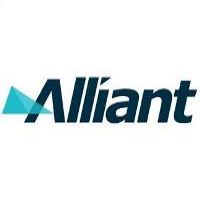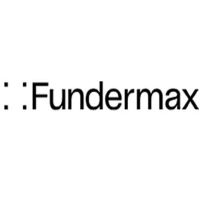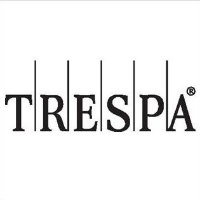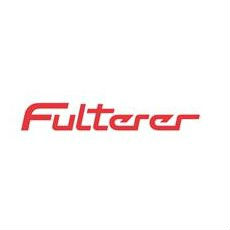Code of Ethics(As Amended January 10, 2022)SEFA members shall distinguish themselves by always engaging in honest, ethical and professional SEFA Code of Ethics : 1. SEFA members shall have, as their primary goal, developing and producing safe and functional 2. SEFA members shall yearly, in writing, acknowledge that they endorse the quality and 3. SEFA members shall maintain objective, professional and ethical judgment. They shall not 4. SEFA members shall use their membership as a means of professional development. 5. SEFA members shall not intentionally engage in any unfair, misleading or deceptive trade 6. SEFA members shall practice in a manner that supports the rights of employers, employees and 7. Violation of the Code of Ethics may result in termination of membership or such other sanction as deemed appropriate by SEFA’s Board of Directors and consistent with the Code of Ethics Rules and Procedures. 8. Applicants for SEFA membership must adhere to SEFA’s Code of Ethics, as a condition of their Code of Ethics Rules and Procedures(Revised as of November 7, 2014) As a condition of SEFA membership, all members shall follow these rules and procedures: Article I - COMPLAINT AND ANSWER§ 1.1 A SEFA member in good standing or the Code of Ethics Committee may file a written confidential complaint alleging a Code of Ethics violation by a SEFA member. The Company bringing the complaint must be a Member of SEFA for at least 18 consecutive months immediately preceding the filing of the complaint and must maintain its status as an active member in good standing during the period the complaint is pending. § 1.2 A filing fee is not required if the complaint is filed by the Code of Ethics Committee. § 1.3 Each complaint shall be accompanied by a non-refundable $850.00 fi ling fee. § 1.4 Robert’s Rules of Order shall be followed in connection with all discussions and deliberations concerning Code of Ethics complaints. § 1.5 All Board members are required to participate in deliberations and vote on a complaint, unless they are either the complainant, the respondent or have some other conflict of interest. § 1.6 For purposes of these Rules and Procedures, the term “days” refers to “calendar days”. § 1.7 In all preliminary decisions made by the Board concerning a potential Code of Ethics violation, the Board shall vote on such matters and a simple majority of those voting shall be required for these determinations. § 1.8 A two-third’s majority of the Board voting shall be required to find a Code of Ethics violation and the corresponding sanction. § 1.9 The alleged Code of Ethics violation must involve business activities which establish qualification for membership in SEFA, as set forth in §3.2 of SEFA’s By-Laws, and must have been committed within two (2) years of the complaint being fi led. In the event a legal, administrative or arbitration proceeding is commenced and involves the same issues, then all proceedings under these Rules will be stayed pending final determination in the other forum. § 1.10 The complaint shall be filed with the Executive Director. § 1.11 Within fifteen (15) days of receipt of a Code of Ethics complaint, the Executive Director will communicate with the member or Code of Ethics Committee to obtain any additional information deemed relevant. This member or the Committee will provide this additional information within (15) days of receipt of the request. § 1.12 Upon receipt of all information provided by the complainant the Executive Director shall, within five (5) days, submit the confidential Code of Ethics complaint to SEFA’s Board of Directors. The complaint shall remain confidential. § 1.13 Within thirty (30) days of the Board’s receipt of a complaint, the Board shall convene either in person or telephonically, to review the complaint. § 1.14 If the Board determines that it requires additional information from the complainant, it shall submit that information in writing within fifteen (15) days after receipt of such request. Alternatively, The Board may determine that it requires a confidential interview with the complainant as well as additional information. § 1.15 Within thirty (30) days after receipt of all information from the complainant and/or completion of an interview of complainant, the Board shall determine if there is probable cause to believe a violation has occurred. Probable cause is defined as a reasonable belief that a member has violated SEFA’s Code of Ethics. § 1.16 A Board determination of no probable cause is final and may not be appealed. § 1.17 If the Board determines that there is probable cause to believe that a Code of Ethics violation has occurred then the Executive Director shall contact the member who is the subject of the complaint, so that said member has an opportunity to submit a response to the Code of Ethics complaint. § 1.18 The member who has been accused of a Code of Ethics violation shall submit an initial response to the complaint to the Executive Director within thirty (30) days of receipt of the Board’s probable cause determination. § 1.19 In the event the member fails to respond to the complaint, the Code of Ethics complaint will be deemed admitted and the Board shall, within thirty (30) days of said default, determine the appropriate sanction set forth in Article III below. § 1.20 Within fifteen (15) days of receipt of the response, the Executive Director shall request any additional information deemed necessary. The member shall provide said additional information to the Executive Director within fifteen (15) days of said request or such time as deemed appropriate by the Executive Director. § 1.21 Upon receipt of the full response or the expiration of the time permitted for such response, whichever shall occur first, the Executive Director shall promptly submit the member’s response to SEFA’s Board of Directors. § 1.22 The Board shall reconvene, either in person or telephonically, within thirty (30) days after the time permitted to submit all responses. Article II - CODE OF ETHICS DETERMINATION§ 2.1 The Board may determine that it requires additional information from either party to make a determination. In such case, the party shall submit the additional information within fifteen (15) days after receipt of such request. The Board may also require an interview of the parties. § 2.2 In the event that the Code of Ethics violation involves a member of SEFA’s Board of Directors, said Board Member shall not participate, in any manner, in the determination of the Code of Ethics violation. § 2.3 Within thirty (30) days after receipt of all information, the Board of Directors shall determine if there exists clear and convincing proof that a member has engaged in a Code of Ethics violation and the appropriate sanction. Clear and convincing proof is defined as information which makes it highly probable that a Code of Ethics violation has occurred. § 2.4 All votes taken by the Board of Directors shall reflect only the number of votes cast. An abstention is not considered a vote for purposes of determining a simple majority or two-thirds (2/3) majority under §1.7 or §1.8 above. Article III – SANCTIONS§ 3.1 In the event that the Board of Directors determines that a Code of Ethics violation has occurred, the Board shall also determine the appropriate sanction for said violation. Those sanctions shall include an award of $850.00 to the member who fi led the complaint and one of the following other sanctions: a) The issuance of a private reprimand to the member; b) The issuance of a public reprimand, which would involve a communication to the entire SEFA membership and a website posting that would be accessible to anyone visiting the SEFA website; c) The member shall be placed on probation for a period not to exceed one (1) year, with appropriate conditions for such probation. d) A suspension of SEFA membership for a period of time not to exceed five (5) years; or e) Termination of SEFA membership. § 3.2 The severity of the sanction shall be based upon, among other factors, the following: a) The damage caused by the violation or the benefit accruing to the member; b) The length of time and/or number of times such violation(s) occurred; c) Any prior warnings by anyone that such conduct was considered a violation of SEFA’s Code of Ethics or was otherwise unlawful; d) The prompt acknowledgement of the violation by the member and a corresponding promise not to engage in such conduct in the future; and e) Any other circumstances deemed relevant by the Board of Directors. § 3.3 Within seven (7) days of the Board making its determination, the Executive Director shall convey in writing said determination to the parties involved. § 3.4 The sanction shall take effect thirty (30) days after the member receives notice of the sanction. § 3.5 To the fullest extent allowed by law, the Board shall be fully indemnified, defended and held harmless by the complainant, respondent and SEFA in connection with the Board’s decisions and activities involving the complaint. Article IV - APPEAL§ 4.1 In the event that respondent disputes the determination of the Board of Directors that a Code of Ethics violation occurred, said SEFA member shall have the right to appeal the Board’s decision to the International Center for Dispute Resolution (“ICDR”) of the American Arbitration Association (“AAA”) located in New York, New York. Only the complainant and the respondent shall be parties to said AAA proceeding. § 4.2 The respondent forfeits it’s right to appeal if the complaint was deemed admitted by the member for failure to submit a response as required under these rules and procedures and shall have no recourse whatsoever to the AAA, any court of law, SEFA’s Board of Directors or any other SEFA committee or member. § 4.3 The Appeal to the AAA must be fi led and all fees paid by the Company taking the appeal, in accordance with the rules of the AAA. The appeal must be fi led within thirty (30) days after the SEFA member receives the Board’s determination that a Code of Ethics violation has occurred. The sanction imposed shall then automatically be stayed for one-hundred and twenty (120) days after the timely filing of the appeal. § 4.4 The appeal of such determination that a Code of Ethics violation was established by clear and convincing evidence, shall follow the rules of the American Arbitration Association and shall be determined by a panel of three (3) arbitrators, who shall make a decision within one hundred and twenty (120) days after the appeal is fi led as to whether the Board of Director’s determination was supported by clear and convincing proof. The sanction imposed by the Board is not appealable and shall not be the subject of any determination in the arbitration proceeding. Notwithstanding the rules of the AAA the respondent in the SEFA Code of Ethics proceeding shall be responsible to pay all fees, costs and expenses of the arbitrators. § 4.5 The arbitrators are not authorized to make any other determinations other than to determine if the Board’s decision was supported by clear and convincing evidence. § 4.6 Notwithstanding §4.5, the arbitrators may award costs and reasonable legal fees to the complainant in the SEFA Code of Ethics proceeding in the event the Code of Ethics determination is upheld or affirmed by a majority of the arbitrators. SEFA CODE OF ETHICS ADVISORY OPINION 2011-1 - Adopted by Board of Directors - April 26, 2011Question: Can a SEFA Executive Member be found to have violated SEFA’s Code of Ethics when the conduct in question was performed by the Member’s dealer or installer? Opinion: The conduct of SEFA Members is governed by SEFA’s Code of Ethics as adopted in September 2010. In many instances, the SEFA Member may not be directly involved in the delivery and installation of the laboratory furniture and related equipment. Typically, this work is performed by companies or individuals designated by SEFA Members to act as dealers or installers. The Members may become aware that dealers and installers have engaged in conduct that might be considered a violation of SEFA’s Code of Ethics. It is the opinion of the Board of Directors that under certain circumstances, a SEFA Member may be held accountable for ethical violations of its dealers and/or installers. Factors to be considered in making this finding include, but are not limited to, the participation of a SEFA Member in the unethical conduct; the extent of the SEFA Member’s knowledge of the unethical conduct engaged in by its dealer or installer; and whether the SEFA Member was advised by third parties (architects, lab planners, end-users, etc.) that they believed conduct may occur which could be deemed a violation of SEFA’s Code of Ethics. In conclusion, the issue of whether a SEFA Member can be held accountable for the acts of its dealers or installers will have to be determined on a case-by-case basis after an analysis of all relevant factors. If you would like to file a complaint under SEFA's Code of Ethics, Click here to download filing instructions and the required form.
|









